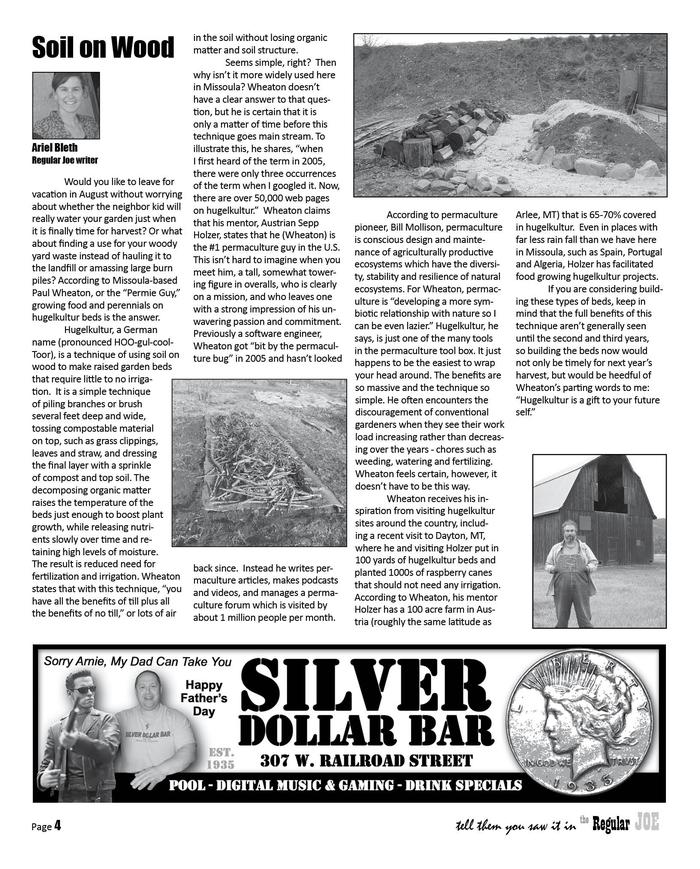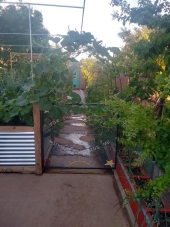

 18
18





How Permies works: https://permies.com/wiki/34193/permies-works-links-threads
My projects on Skye: The tree field, Growing and landracing, perennial polycultures, "Don't dream it - be it! "

 31
31




 22
22




"The genius of American farm experts is very well demonstrated here: they can take a solution and divide it neatly into two problems." -Wendell Berry
 27
27




Perfect The Dwelling Land!
 21
21




Creating edible biodiversity and embracing everlasting abundance.
 29
29




 13
13




"The genius of American farm experts is very well demonstrated here: they can take a solution and divide it neatly into two problems." -Wendell Berry
 14
14




Life on a farm is a school of patience; you can't hurry the crops or make an ox in two days.
Henri Alain
 12
12




William Bronson wrote: It was a chaotic mess, and a lot of work.
I could have bought plenty of pizza for that much money, but eating pizza was only a fraction of what we accomplished that day.
 11
11




"When the whole world is running towards a cliff, he who is running in the opposite direction appears to have lost his mind." C.S. Lewis
Visit https://themaineingredient.com for organic, premium dried culinary herbs that are grown, processed, and packaged in the USA.
 13
13




 14
14




 6
6




Thom Bri wrote:I spent 83 hours last year growing 230 Lbs of corn. I can buy sacks of corn for $10 for 50 Lbs. So for $50 I could replace all my labor. A singe overtime shift would pay for all the food I grew last year. Gardening to 'save money' is simply silly in my situation.
I enjoy my job and it's an important job. But when they call me to work overtime I almost always say 'no'.

Life on a farm is a school of patience; you can't hurry the crops or make an ox in two days.
Henri Alain
 15
15




 8
8




One can never be too kind to oneself or others.
 15
15




One can never be too kind to oneself or others.
 17
17




 14
14




Maieshe Ljin wrote:Thom… did you take the variety into consideration? I have seen Painted Mountain corn sold for ten dollars a jar—these were maybe a quart or so? I never saw them again. So depending on the variety it could be far more economical to do what you did.






 13
13




Country oriented nerd with primary interests in alternate energy in particular solar. Dabble in gardening, trees, cob, soil building and a host of others.
 7
7




Josh Hoffman wrote:In the US, I have noticed most people relentlessly pursuing comfort and leisure. It has not made us any healthier, having a lot of "free time".
 9
9




Moderator, Treatment Free Beekeepers group on Facebook.
https://www.facebook.com/groups/treatmentfreebeekeepers/





 12
12




Forever creating a permaculture paradise!
 13
13




 8
8




John Wolfram wrote: A more interesting comparison would be growing your own food versus buying from the best grower at your local farmers market.
Forever creating a permaculture paradise!
 9
9




One can never be too kind to oneself or others.
 13
13




 14
14




How permies.com works
What is a Mother Tree ?
 9
9




John Wolfram wrote: I suppose if you could lived in a community, you could have one person specialize in tomatoes, another in pigs, another in tree fruits, another in grains (and so on) and just trade amongst yourselves, but that's basically just a recreation of the farmers market.
Visit Redhawk's soil series: https://permies.com/wiki/redhawk-soil
How permies.com works: https://permies.com/wiki/34193/permies-works-links-threads
 6
6




 6
6




One can never be too kind to oneself or others.












 5
5




Sam Shade wrote: it's only as sustainable as a video game hobby or a gym membership.
How Permies works: https://permies.com/wiki/34193/permies-works-links-threads
My projects on Skye: The tree field, Growing and landracing, perennial polycultures, "Don't dream it - be it! "
 13
13




Nancy Reading wrote:Is it a waste of time to grow your own food - does it take such a lot of time that you could just earn the money instead and buy the food? How much time does growing your own food take, and what are good time saving techniques?
Whoah!! Check out this permie deal!! https://permies.com/w/homesteading-bundle?f=232
"The only thing...more expensive than education is ignorance."~Ben Franklin. "We can easily forgive a child who is afraid of the dark; the real tragedy of life is when men are afraid of the light." ~ Plato
 12
12




Carla Burke wrote:I don't think it's a waste of time, at all. There truly is a great deal of excellent information, here already. But, one thing I've not seen yet, is one of the reasons I think gardening is so much better: the ACT of gardening is wonderful for your health.
 15
15




 8
8




 13
13




 10
10




 14
14




Visit Redhawk's soil series: https://permies.com/wiki/redhawk-soil
How permies.com works: https://permies.com/wiki/34193/permies-works-links-threads
 12
12




Nathan Burton wrote:Money could save time, for sure. But how better could you possibly use that time?

|
There will be plenty of time to discuss your objections when and if you return. The cargo is this tiny ad:
permaculture bootcamp - gardening gardeners; grow the food you eat and build your own home
https://permies.com/wiki/bootcamp
|








